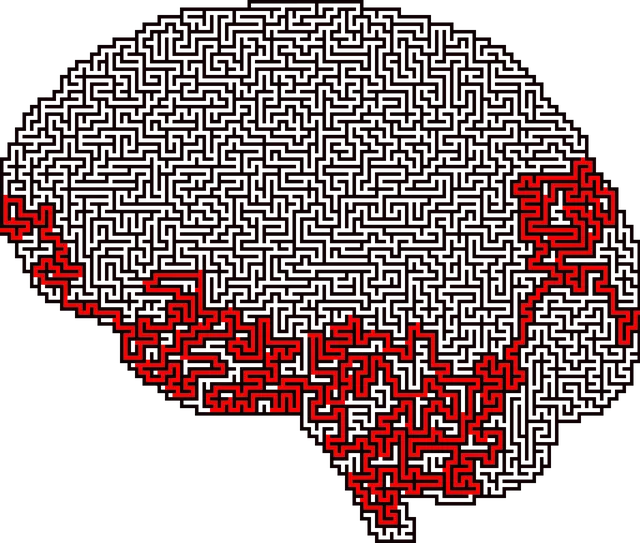Cultural competence is a vital aspect of modern mental healthcare, especially with multicultural populations on the rise globally. The Parker Kaiser mental health classes play a pivotal role in fostering cultural sensitivity, equipping professionals with tools to provide tailored support to diverse patients. Through interactive sessions focusing on empathy and cultural context, these classes move beyond generic treatments, enhancing cultural competency and improving patient outcomes. By addressing cultural barriers like language differences and religious practices, Parker Kaiser's programs enable mental health providers to create inclusive environments, adapt communication styles, and bridge cultural gaps in therapy, ultimately strengthening therapeutic relationships and fostering trust among diverse client backgrounds.
Cultural sensitivity is paramount in modern mental healthcare, ensuring equitable access and effective treatment for all. This article explores strategies for enhancing cultural competence among mental health professionals, focusing on the transformative role of Parker Kaiser mental health classes. We discuss identifying cultural barriers, incorporating sensitive practices into therapy sessions, and promoting inclusive environments. By understanding diverse cultural contexts, we can improve outcomes and foster trust in mental healthcare services.
- Understanding Cultural Competence in Mental Healthcare
- The Role of Parker Kaiser Mental Health Classes
- Identifying and Addressing Cultural Barriers
- Incorporating Cultural Sensitivity into Therapy Sessions
- Promoting Inclusive Mental Healthcare Practices
Understanding Cultural Competence in Mental Healthcare

Cultural competence is a cornerstone in modern mental healthcare, reflecting an understanding and appreciation for the diverse cultural backgrounds and beliefs of patients. It involves recognizing how cultural factors can influence mental health experiences and treatment outcomes. This concept has gained significant importance, especially with increasing multicultural populations worldwide. The need for culturally sensitive practices is evident, as it ensures that individuals from different ethnic, racial, and social groups receive tailored care that respects their unique perspectives and needs.
Mental health professionals, such as those who attend Parker Kaiser mental health classes, play a vital role in promoting Cultural Competence. These classes often focus on enhancing Mental Health Awareness and preventing Burnout by providing practitioners with the skills to navigate complex cultural landscapes. By understanding Depression Prevention strategies through a cultural lens, healthcare providers can offer more effective support, thereby improving patient outcomes and fostering stronger, more inclusive therapeutic relationships.
The Role of Parker Kaiser Mental Health Classes

The Parker Kaiser Mental Health Classes play a pivotal role in fostering cultural sensitivity within mental healthcare practices. These classes are designed to equip healthcare providers with essential tools and insights, enhancing their ability to offer tailored support to diverse patient populations. Through interactive sessions, participants delve into topics such as empathy building strategies and exploring the nuances of different cultural contexts. This training encourages providers to move beyond generic treatment approaches, embracing a more nuanced understanding of mental health issues across various communities.
By participating in these classes, healthcare providers gain valuable knowledge about cultural competency, enabling them to navigate complex conversations with sensitivity and respect. The focus on anxiety relief strategies tailored to cultural backgrounds ensures that care is effective and accessible, bridging the gap between healthcare providers and patients from diverse ethnic and social groups. Ultimately, the Parker Kaiser Mental Health Classes contribute significantly to creating a more inclusive and responsive mental healthcare system.
Identifying and Addressing Cultural Barriers

Cultural sensitivity is an integral aspect of mental healthcare practice, ensuring that services are accessible and effective for individuals from diverse backgrounds. Identifying cultural barriers is the first step towards creating inclusive environments. For instance, Parker Kaiser mental health classes often highlight these barriers, focusing on topics like language differences, dietary considerations, and religious practices that might impact treatment adherence. Through such education, professionals learn to adapt their approaches, ensuring every patient receives personalized care.
Addressing these barriers involves training in cultural competency, including Social Skills Training and Inner Strength Development programs. These initiatives empower mental health practitioners to recognize and appreciate the unique perspectives of their clients. By integrating Depression Prevention strategies that consider cultural nuances, healthcare providers can build trust and facilitate meaningful connections with patients, ultimately enhancing treatment outcomes.
Incorporating Cultural Sensitivity into Therapy Sessions

Incorporating cultural sensitivity into therapy sessions is a cornerstone of effective mental healthcare practice, as it fosters understanding and trust between therapists and clients from diverse backgrounds. At Parker Kaiser Mental Health Classes, we emphasize the importance of recognizing and respecting individual cultural values, beliefs, and traditions. This approach not only enhances the therapeutic alliance but also ensures that interventions are culturally appropriate and tailored to meet each client’s unique needs.
By integrating cultural sensitivity, mental health professionals can improve their ability to assess and address emotional regulation challenges in a way that resonates with clients’ life experiences. This involves adapting communication styles, understanding implicit biases, and incorporating relevant cultural contexts into risk management planning for mental health professionals. Additionally, community outreach program implementation can help bridge cultural gaps and expand access to care for underrepresented populations.
Promoting Inclusive Mental Healthcare Practices

In today’s diverse society, promoting inclusive mental healthcare practices is paramount to ensuring that all individuals receive culturally sensitive support and treatment. Mental health professionals must be equipped with the knowledge and skills to navigate the intricate landscape of cultural differences, which can significantly impact a client’s experience and outcomes. This requires a deep understanding of various cultural contexts, beliefs, and practices related to mental illness and healing.
One effective approach to fostering inclusive care is through comprehensive training programs like those offered by Parker Kaiser. These mental health classes focus on educating professionals about the importance of cultural sensitivity in therapy, providing them with practical communication strategies tailored to diverse populations. By integrating mental health education programs designed with cultural awareness at their core, healthcare providers can better address the unique needs and challenges faced by individuals from different backgrounds, fostering a more inclusive and effective treatment environment.
Cultural sensitivity in mental healthcare is no longer a consideration but a necessity. By understanding cultural competence and incorporating practices like the Parker Kaiser Mental Health Classes, professionals can effectively identify and address cultural barriers. This approach fosters inclusive environments that cater to diverse patient needs, ensuring better outcomes and enhanced access to quality care for all. Embracing these strategies is a vital step towards revolutionizing mental healthcare, making it more responsive and culturally sensitive.






